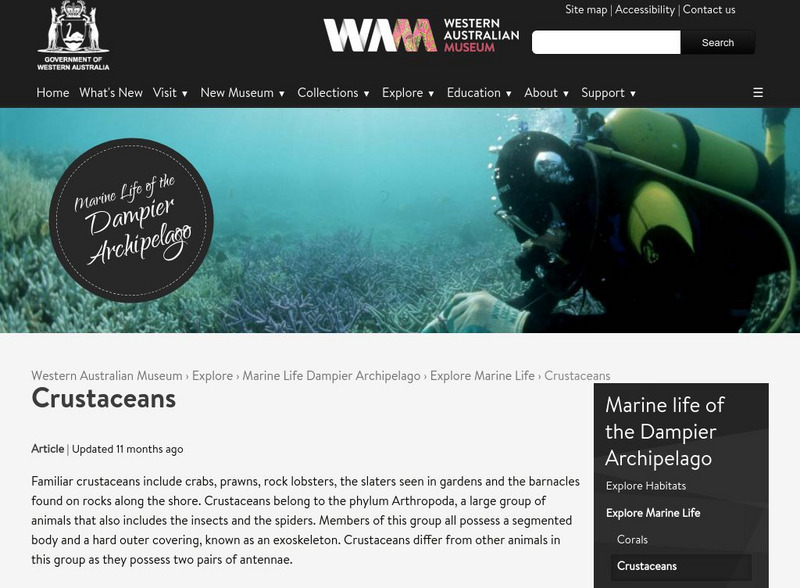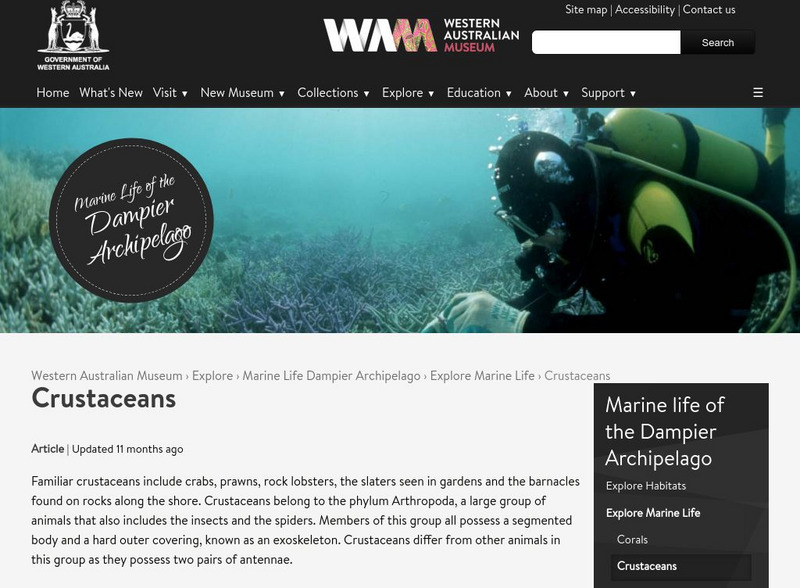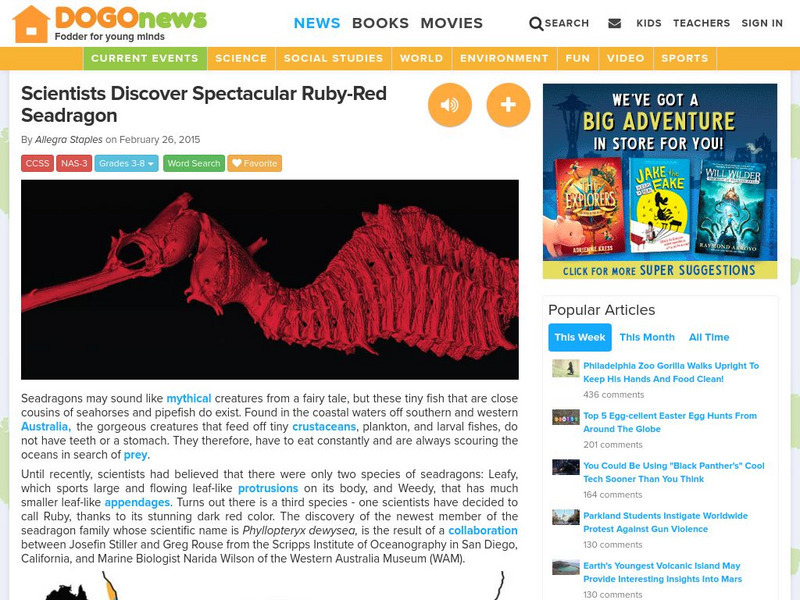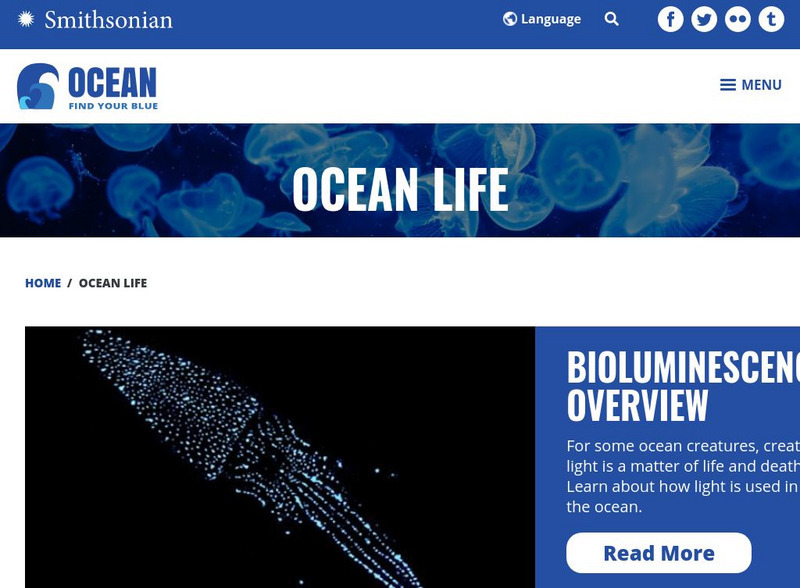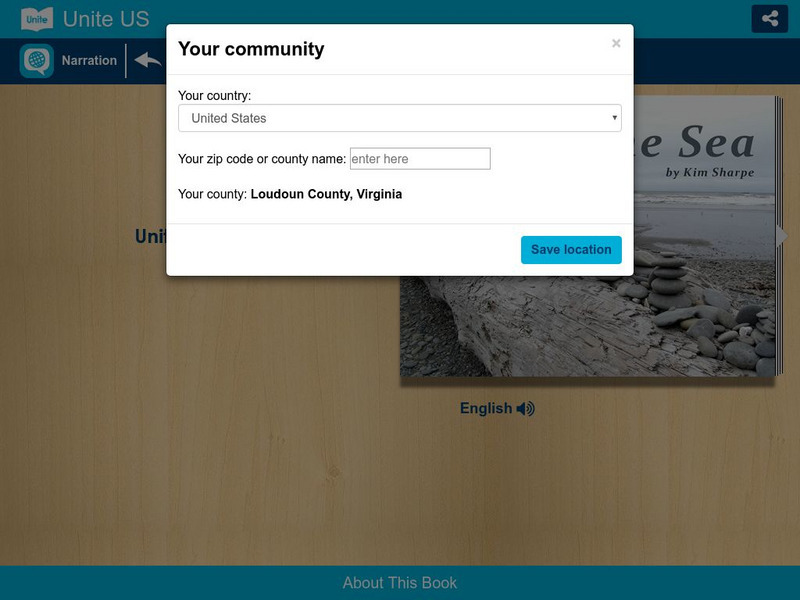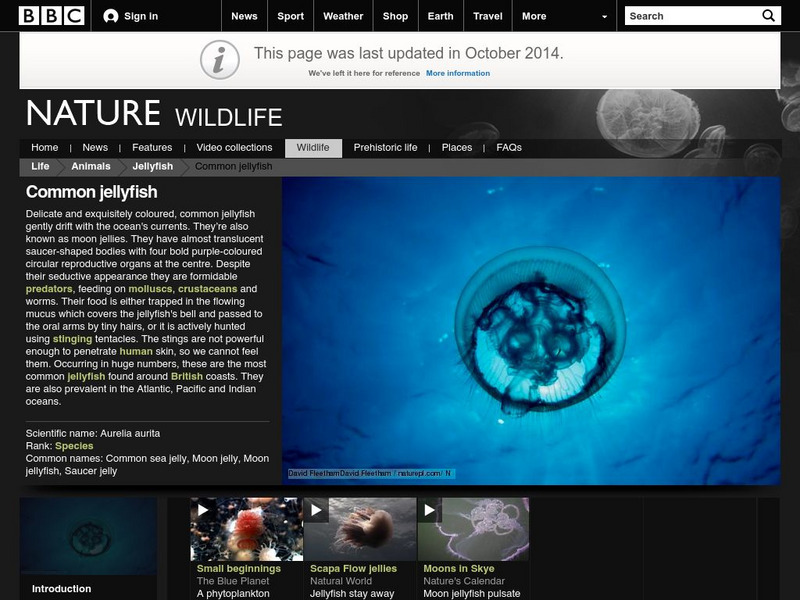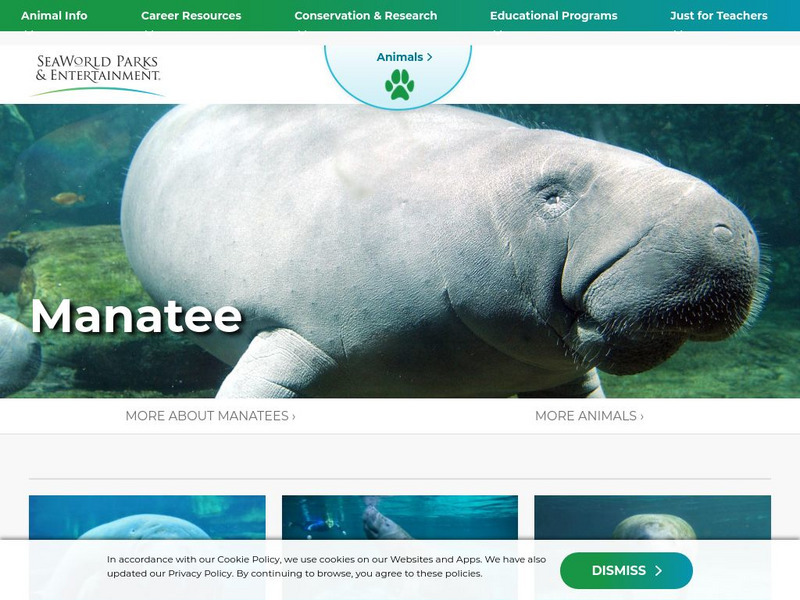TED Talks
Ted: Ted Ed: Sylvia Earle's Ted Prize Wish to Protect Our Oceans
What's been happening to the world's oceans over the past 50 years? Ocean researcher, Sylvia Earle, shares breathtaking images of the ocean and surprising details about the many problems plaguing its health. [18:12]
Science Buddies
Science Buddies: Swimming in Acid: Understanding Ocean Acidification
The oceans are a precious natural resource, part of Earth's carbon cycle. But what happens if the oceans absorb too much carbon dioxide? Many scientists are concerned that the increased absorption of carbon dioxide is causing them to...
Language Guide
Language Guide: Los Animales Del Mar (Spanish)
This resource provides colorful pictures of sea animals interact with audio and the written vocabulary word as you move your mouse over the picture. This vocabulary would compliment a science unit on marine life.
Smithsonian Institution
Smithsonian: Ocean Planet: Interdisciplinary Marine Science Activities
Smithsonian Institution presents ?Ocean Planet: Interdisciplinary Marine Science Activities?. Through this series of six interdisciplinary lessons, students will look at such things as the organisms in different marine ecosystems, the...
Society for Science and the Public
Science News for Students: Ocean Animals Have Mushroomed in Size
Article reports on the increasing size of ocean animals over the millenia. Includes a list of key vocabulary.
SEDL
Oceans [Pdf]
This large PDF file integrates math, science, and language into several lessons about characteristics of the oceans. Topics include ocean currents, tides, density, marine life, and pollution.
Smithsonian Institution
National Museum of Natural History: Paleobiology: The Ordovician Period
Journey into the past while reading this comprehensive overview of the Ordovician Period that covers topics such as reef ecosystems, Paleozoic Fauna, fossil evidence, and climate and plate tectonics.
Smithsonian Institution
National Museum of Natural History: Paleobiology: The Mississippian Period
Journey into the past while reading this comprehensive overview of the Mississippian Period that covers topics such as life in the seas, tetrapods and other life on land, fossil evidence, and climate and tectonics.
Other
Western Australian Museum: Sponges: Marine Life of the Dampier Archipelago
Did you know that sponges are one of the simplest animals that exist? Learn about these multi-cellular animals and their importance to the marine environment.
Other
Western Australian Museum: Crustaceans: Marine Life of the Dampier Archipelago
Do you know how Crustaceans differ from other animals that belong to the Arthropod family? Find the answer to this question along with other interesting facts about this marine animal.
BBC
Bbc Newsround: How Cuttlefish Avoid Being Eaten by Sharks
Brief read on an adaptation technique cuttlefish use to avoid being eaten by sharks.
DOGO Media
Dogo News: Scientists Discover Spectacular Ruby Red Seadragon
Read about the discovery of a seadragon. Includes video.
American Museum of Natural History
American Museum of Natural History: O Logy: Marine Biology: The Living Oceans
This resource is a place for exploring, asking questions, finding information, meeting scientists, and learning about marine ecosystems.
Smithsonian Institution
National Museum of Natural History: Ocean Planet
Detailed website that was a companion to a 1995 traveling exhibit of the Smithsonian. Links to lesson plans and other educational materials are at the bottom of the page. Enter the exhibition to explore the world of the ocean.
Smithsonian Institution
National Museum of Natural History: Ocean Portal: Ocean Life & Ecosystems
From the tiny to the titanic, from the familiar to the undiscovered, the ocean offers a stunning diversity of marine life and nearly every kind of habitat imaginable. Dive in and explore them here. Links incude stories, videos and photos...
NOAA
Noaa: Living Ocean Gallery Invertebrates
Many still photographs and video clips of marine invertebrates are available in this huge collection.
NOAA
Noaa: Ship Okeanos Explorer: "America's Ship for Ocean Exploration"
Follow teams of scientists as they explore marine life and habitats of the deep ocean. Covers past and current expeditions in various regions of the world. Includes webcasts, videos, lesson plans and modules, and career resources. An...
Unite for Literacy
Unite for Literacy: Earth and Sky: By the Sea
Read about the different sights you can see along the seashore. Includes audio narration in English and Turkish with text in English.
Other
Galapagos Islands: Wildlife Gallery
Great photos and descriptions of the wildlife in the Galapagos Islands. There are also links to information on the natural history, environment, and geology of these islands.
BBC
Bbc Nature: Wildlife: Stingrays
Discover the fascinating world of the stingray by learning about its distribution, behaviors, habitats, geological time periods, and classification through videos, news, photos, descriptions, and external links.
BBC
Bbc Nature: Wildlife: Common Jellyfish
Explore the fascinating world of the common jellyfish by learning about its distribution, behaviors, habitats, and classification through videos, photos, descriptions, and external links.
Sea World Parks & Entertainment
Sea World: Manatees
Outlines the characteristics of the manatee, including classification, habitat, behaviors, and conservation. Helps students identify with manatees with a list of "Books for Young Readers." Information at a level of upper intermediate or...
Encyclopedia of Life
Encyclopedia of Life: Spiny Rayed Fishes
Extensive resource examines spiny rayed fishes with a description, pictures, and maps. Includes facts on habitat, history, behavior, conservation, and external links.
Encyclopedia of Life
Encyclopedia of Life: Mollusks
Thorough reference tool explores the mollusk with a description, pictures, and maps. Includes facts on ecology, history, behavior, evolution, conservation, and external links. The mollusk image is no longer available.





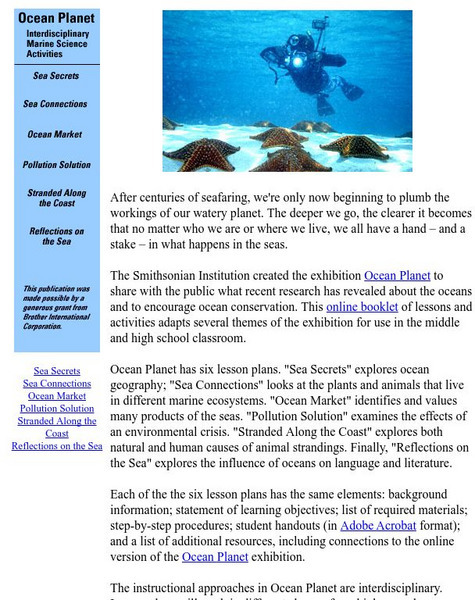

![Oceans [Pdf] Activity Oceans [Pdf] Activity](https://d15y2dacu3jp90.cloudfront.net/images/attachment_defaults/resource/large/FPO-knovation.png)
